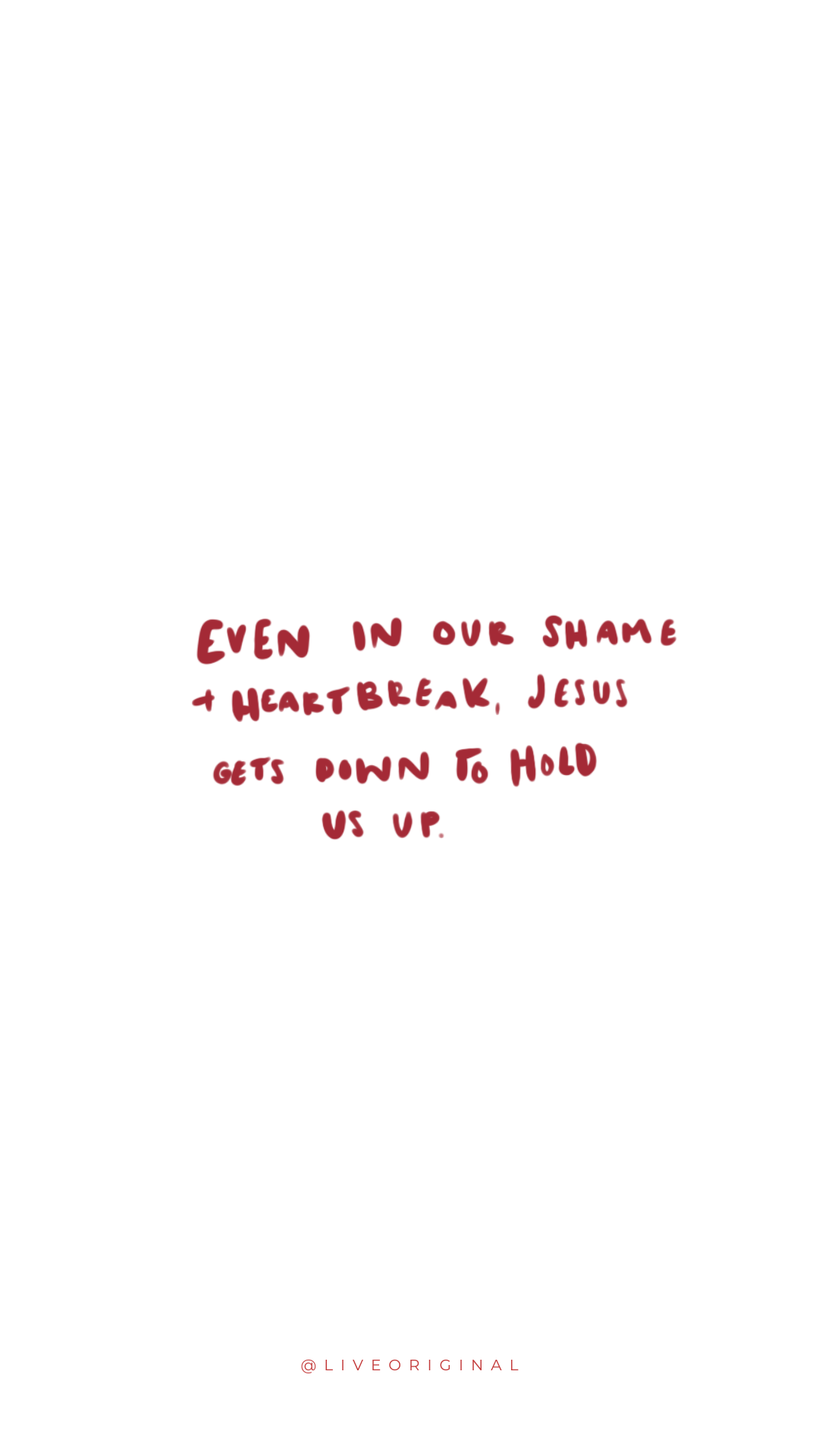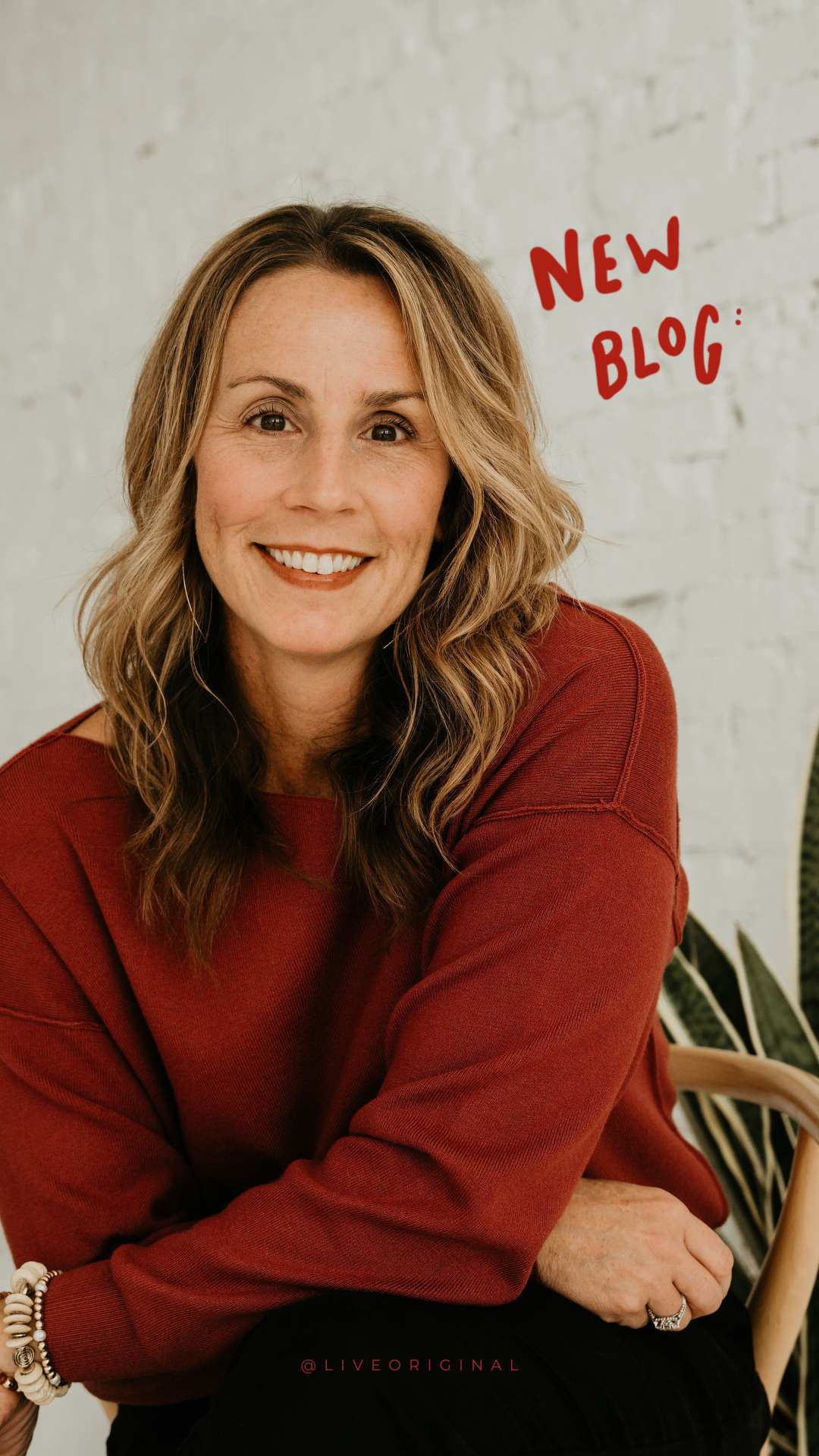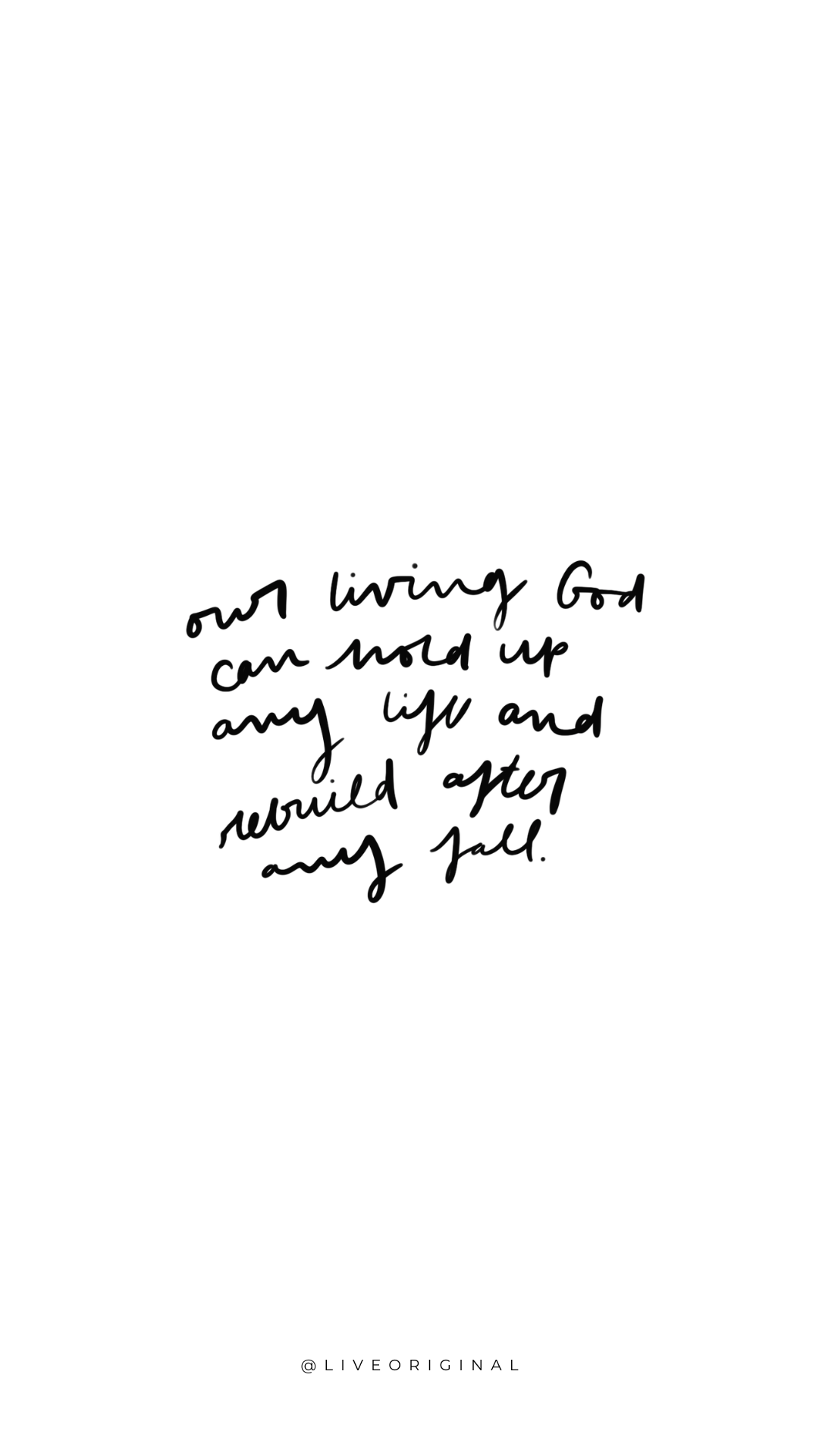The first time I encountered Jesus face-to-face was in the middle of a run. Running had become my escape. I was running and crying and talking to him. I knew I couldn’t live any real life in the tension of an affair. It was too dissonant. This life wasn’t me; it was deceptive and disgusting. Except it was me. I felt trapped and didn’t know how to get out. I knew the level of ruin I was looking at. Something stopped me right there on the sidewalk. I fell to my knees and said, “Get me out. However you need to. Break me.”
Break me.
Those words had bounced around in my head for weeks. I knew they had been planted there by the Holy Spirit. I had a sense that they were serious, that I should not say them lightly. I knew they somehow signaled that I was ready for his plan and his way of busting in to come get me. Sounded scary. And ugly. And out of my control.
My first “yes” to Jesus in years was in those two little words. Two weeks after I dared say them out loud, a chain of events went down that led to my confession. I went home one day and told my husband about the affair. The relationship was also exposed around that time at work. I knew God was behind it all. I knew the crash was coming before it came. I knew it when I said those words to God. As painful as it was, I had a strange certainty it was part of something that had to be done. And I was right. The old foundation just wasn’t strong enough.
The weeks that followed were terrible. I felt more guilt, pain, hopelessness, and fear than I thought one person could take. I couldn’t eat. The only peace I had was the split second as I opened my eyes each morning before my reality all came crashing down on me again. For months after, I wondered daily if my husband would even come home. I was a pariah at work. The “house” I thought I was building was in a heap at my feet.
But the God I encountered in that time changed my whole life. In my worst and weakest moment, I found something much, much stronger, kinder, and better to stand on. I found the truth, compassion, and power of a living God who can hold up any life and rebuild after any fall. The first act of kindness was a vision I had one night while lying in bed. Alone. While I was wondering if “alone” would be my new normal, I felt God’s arms around me. I saw a picture—sort of like a daydream—of two long, welcoming, strong, warm arms reaching down and encircling my entire home. Not just for me but for my husband, who was sleeping in the room next to mine. I felt warm and held and, for a moment, I knew he was there.
I caught another glimpse of this God in the mirror one day. I paused, studying my own reflection. I told her the ugly truth: “Alli, you’re a liar, a terrible friend, a dishonest employee, and the worst wife.” I stood looking in the mirror, sobbing at the truth of it all. But something else happened. Right there, in the painful truth of that confession, I also felt a rush of reassurance and relief that I didn’t have to hold myself an inch above collapse anymore. I could let go and trust him instead of myself to hold it all together. I also felt his promise that one day I wouldn’t even recognize this person I saw in the mirror. I knew deep down she wasn’t me anyway.
I saw this amazing God again in a small room with the HR woman who I’d tried so hard to avoid. She was talking about what would happen to me at work—my reputation was another pile of rocks at my feet. I was crying; I couldn’t look her in the eyes. She paused awkwardly and gently said, “Could I pray for you right now?” My head snapped up and my eyes got wide as the room filled with the presence of God. Even in my shame and heartbreak, Jesus got down underneath me to hold me up.
Every one of these moments was a beam driven into my crumbling foundation. Jesus took the time and care to convince me when I felt worthless that he is a God who does not agree. He showed me over and over that he meant his words: “Come to me, all you who are weary and burdened, and I will give you rest” (Matt. 11:28). Jesus seemed to want me to come to him especially in the places where I wasn’t on solid ground. It was in those spots he offered to let me stand on him.
He did that for the apostle Paul too. Paul had a huge collapse, but Jesus gave him a new foundation. You can read the story starting in Acts 9. Later, as Paul thought about the Jesus who chased him down with grace when he was at his worst, he recognized there was always a plan to rebuild his life. He wrote letters to the churches he planted about his own experiences with Jesus and how there was a plan in place for his life way before he knew it: “When God, who set me apart from my mother’s womb and called me by his grace, was pleased to reveal his Son in me so that I might preach him among the Gentiles”(Gal. 1:15–16). God picked Paul even before his worst days, knowing they would come. God showed him the real Jesus so Paul could go on and tell others how to find this incredible strength and grace too.
It was during this time, the lowest time in my life, that I stumbled into the everyday habits of this book—coming broken to him, trying to read the Bible again, and risking actual moves of faith. Because I had nothing to lose, I told the truth to every question I was asked. I didn’t have the energy to pretend anymore. It was obvious who I was, and it wasn’t pretty. I confessed, apologized, took responsibility, and repented. I prayed every day—pretty much all day. I told God I was willing to follow him anywhere. And I really tried to do that. What I didn’t know was that I was slowly uncovering the key of life as a disciple: taking risks on God. I risked telling the absolute truth and found forgiveness. I risked destroying the last bit of trust when I confessed and instead earned a tiny bit back. I risked a no when I asked, “Can you forgive me?” Instead, I heard a yes. Life as a Jesus follower is full of all kinds of risks to convince us of the truth:
“Everyone who comes to me and listens to my words and puts them into practice—I will show you what he is like: He is like a man building a house, who dug down deep, and laid the foundation on bedrock.” (Luke 6:47–48 NET)
There’s a life and a strength for you far beyond your own. There’s a better foundation for your life than you or your money, your reputation, your connections, your adventures, your intelligence, or your morality and goodness. Paul and I and many others have preached the same gospel: Jesus died for your sins and rose from the dead according to the everlasting plans of God so that you could be offered a life that will never end, standing firm on the only foundation that’s strong enough to last. And it’s all by his grace. You will never deserve it. Whatever you build on him will stand. Nothing else will hold.
It’s all about the foundation.
The good news is that no matter where you are when you start this book, Jesus can build or rebuild anything. He fills in cracks, adds steel beams, and drives piers through your old concrete. And you can meet him in three simple rhythms of faith.
Come to him. Hear his word. Practice it in your life.
Today is a day you either widen a crack or fill one in. Let’s dig deep and build on rock.
Alli Patterson is passionate about helping others build a life on the firm foundation of Jesus’s truth and grace. She holds a master’s degree in biblical studies from Dallas Theological Seminary and is a teaching pastor at Crossroads Church. She lives with her husband, Bill, their four children, and one very bratty cat. Alli is a fan of Mexican food, Ohio State football, geeky Bible maps and timelines, pedicures, long runs, and good books.
To connect with Alli and find more information about her book How to Stay Standing go to www.theallipatterson.com.



















This is a powerful story! It gives me hope.